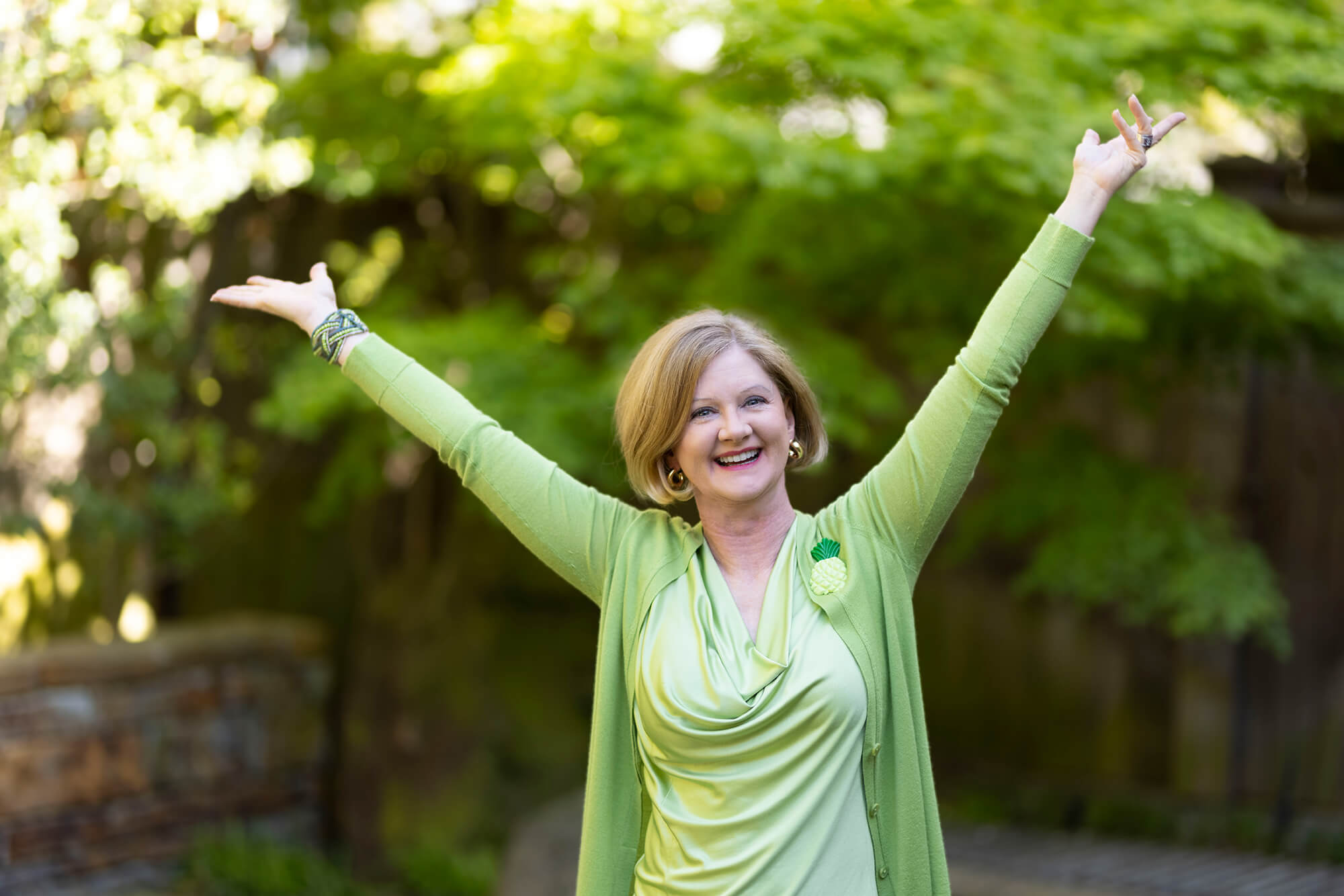My goals as a gerontologist are to empower, educate, and energize women using great information backed up by sound science. We deserve to be the masters of our health and our destiny. Obviously, we have merited that unique focus all along, but thank goodness society is finally catching up. We now see women across the planet stepping up and taking their rightful places as full creators of their future. I want to help each one of them access the very best, most vibrant version of herself.
This is the foundation of my work. The practice of Gerontology is both a science and an art; it’s the blending of research and education, advocacy and care for the older adult population.
The two most common questions I’m asked almost every day are, “What is gerontology?” and “What does a gerontologist do?” Once I explain, people always want specific answers about aging more vibrantly.
The most popular questions center on preventing dementia and Alzheimer’s.
What is Gerontology?
Gerontology is the all-encompassing study of aging and the problems related to aging. This is different from the study of geriatrics.
Geriatrics and geriatricians focus only on the medical conditions and diseases of the aged, while Gerontology is a multidisciplinary field of social science, and gerontologists study and bring together the fields of psychology, biology, physiology, and sociology. We gerontologists look at all the aspects of aging:
- The study of the body (biology)
- The mechanical, physical, and biochemical functions and processes of the body (physiology)
- The study of behavior and emotions (psychology)
- Our human social relationships (sociology)
- The spiritual beliefs many of us embrace—the way of our hearts (without getting specific about religion and its related dogma)
What Does a Gerontologist Do?
We gerontologists look at the whole person—body, mind, and spirit, and I specialize in helping the body, mind, and spirit of women 55 and older to be more vibrant. I look at age-related diseases and take into consideration the risk factors that may come with getting older.
Many of us, myself included, seek to preserve as much of our vital body/mind/spirit as possible based on, and anchored in, the best emerging science available. Sometimes that changes yearly, or even, monthly!
In 2020 the U.S. Census Bureau increased the life expectancy for men to 77 years, and life expectancy for women is 82 years. We aging adults face new challenges as we work to stay healthy in all aspects, and gerontologists are uniquely qualified and trained to offer help and advice in confronting our changing needs.
In my practice I go even further; I base my recommendations on non-pharmaceutical approaches to aging vibrantly. I practice what I preach and never offer any advice to my clients and readers before I personally incorporate the suggestions into my own life.
Thanks to science, I am now working at becoming a meditating, tap dancing piano player, who strives for eight hours of sleep, tries to avoid sugar and processed food, and embraces every aspect of life as best I can—all of which are keeping my mind, body, and spirit more vibrant.
But, there’s more.
Research from the biological, physiological, social, and psychological sciences provides valuable insights about old age, but the sciences are driven by the greater imagination, hopes, fears, and experiences of people. Gerontology blends all these elements together like the flour, eggs, yeast, and water used to make a wonderful loaf of bread. Gerontologists are the bakers who knead and bake the dough, giving rise to something new, whole, and complete from these individual ingredients.
Answering Some Your Questions
Our two greatest fears as we get older are losing our minds to dementia or Alzheimer’s and losing our balance and irrevocably breaking our bodies. There are others, but cognitive decline tops the list.
Here are some of your questions on these topics.
What is the number one thing I can do right now to help prevent dementia?
The very first, maybe the biggest 3 choices you can make to change to course of your aging and prevent cognitive decline is stop smoking NOW, give up processed food and cut down sugar in all forms.
We know beyond any gray area, inflammation drives all disease, especially diseases of our gray matter—our brains. Many other things will keep your mind sharp, but it all starts with what you choose to put in your body is a key way to stave off dementia and Alzheimer’s.
Is sleep really that big a deal?
In a word, yes! Along with giving up sugar and processed foods, adding enough good quality sleep (7-8 hours of sleep per night, consistently) is an absolute game-changer in terms of dementia and Alzheimer’s.
Toxic damage from free-radicals causes changes to the structure of our brain. During sleep time, our bodies, like those midnight street cleaners, remove the toxins and free radicals which permanently kill brain cells and alter our brain chemistry.
An added bonus of getting enough sleep? You will feel like a million and look light-years younger!
Because my mother developed Alzheimer’s, I’m sure to get it too, right?
Wrong!
Research has proven conclusively that genetics plays a small part in whether we develop any disease, or not. We can now actively and purposefully change our genetic expression. We call this epigenetics.
According to two the most cutting-edge aging researchers, Drs. Ayesha and Dean Sherzai, only 3% of Alzheimer’s cases are driven by having the kind of genes that cause Alzheimer’s. The other 95% of cases of Alzheimer’s are the result of lifestyle choices.
There is so much more to say on this important topic!
Until next time… Be Vibrant!
Share Your Thoughts…
What question do you have about aging vibrantly?
Ask your questions below!

